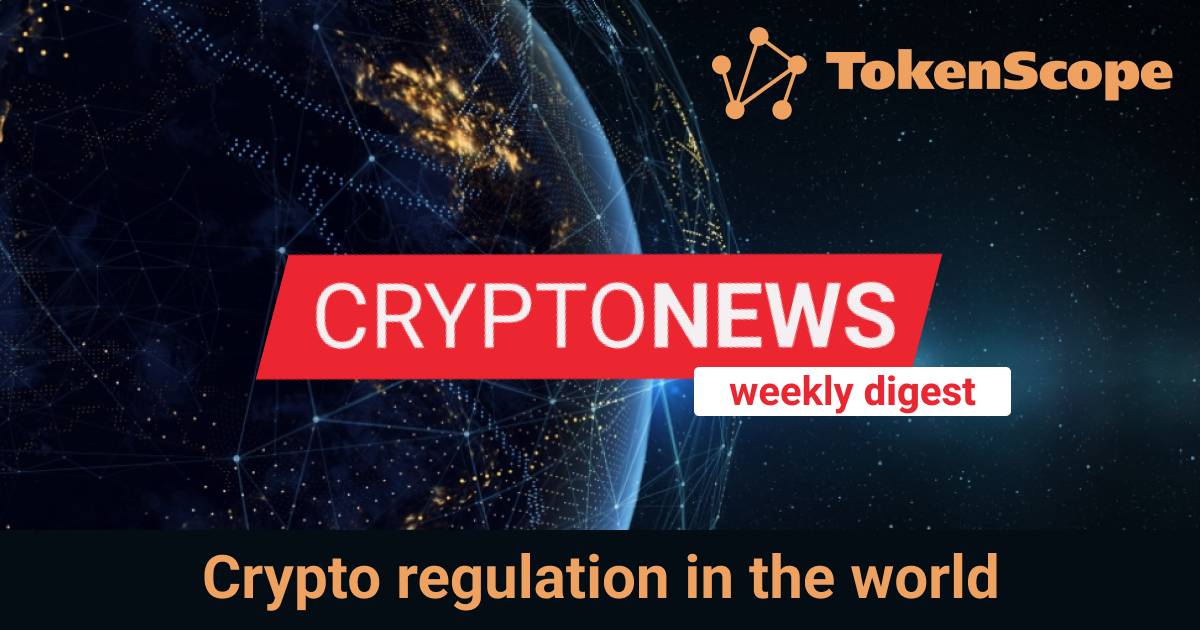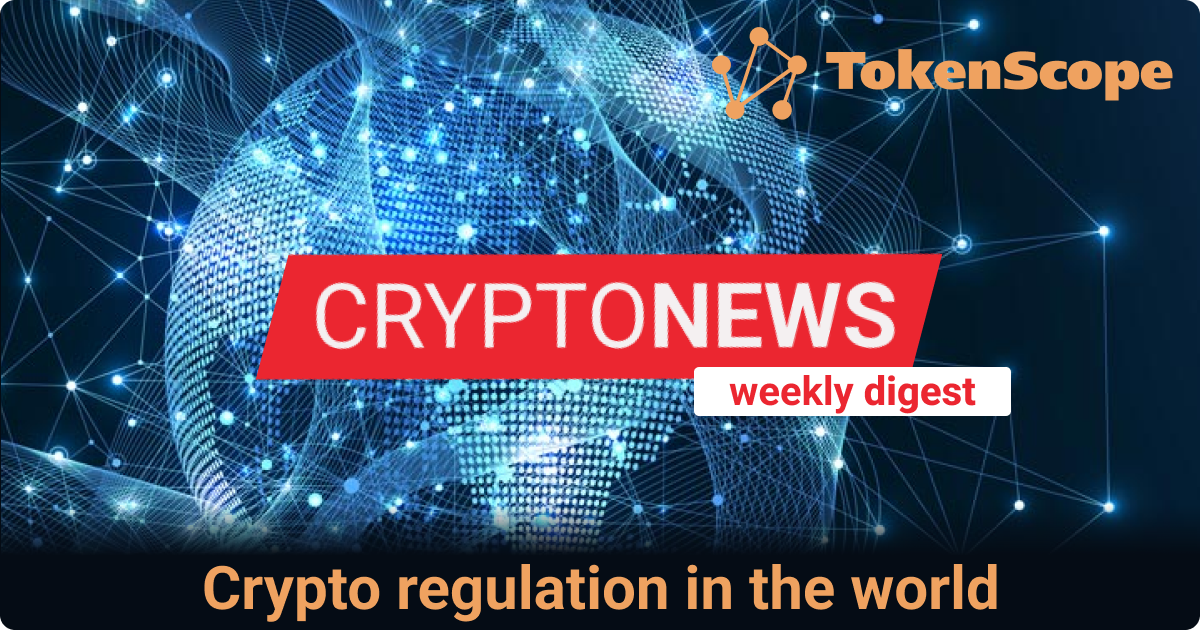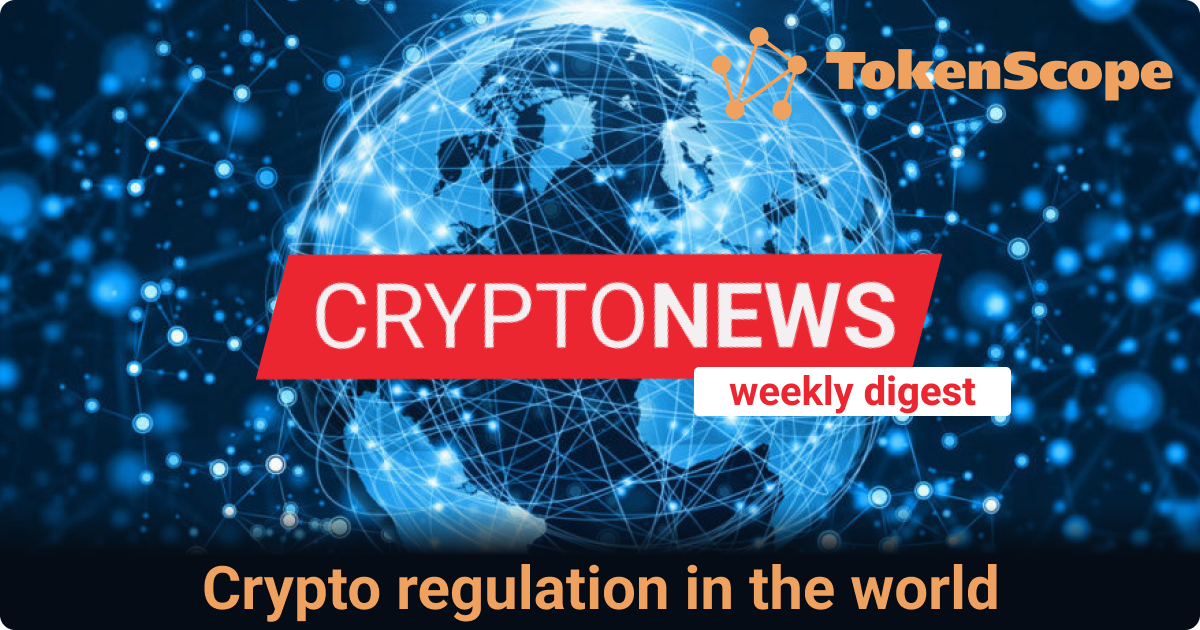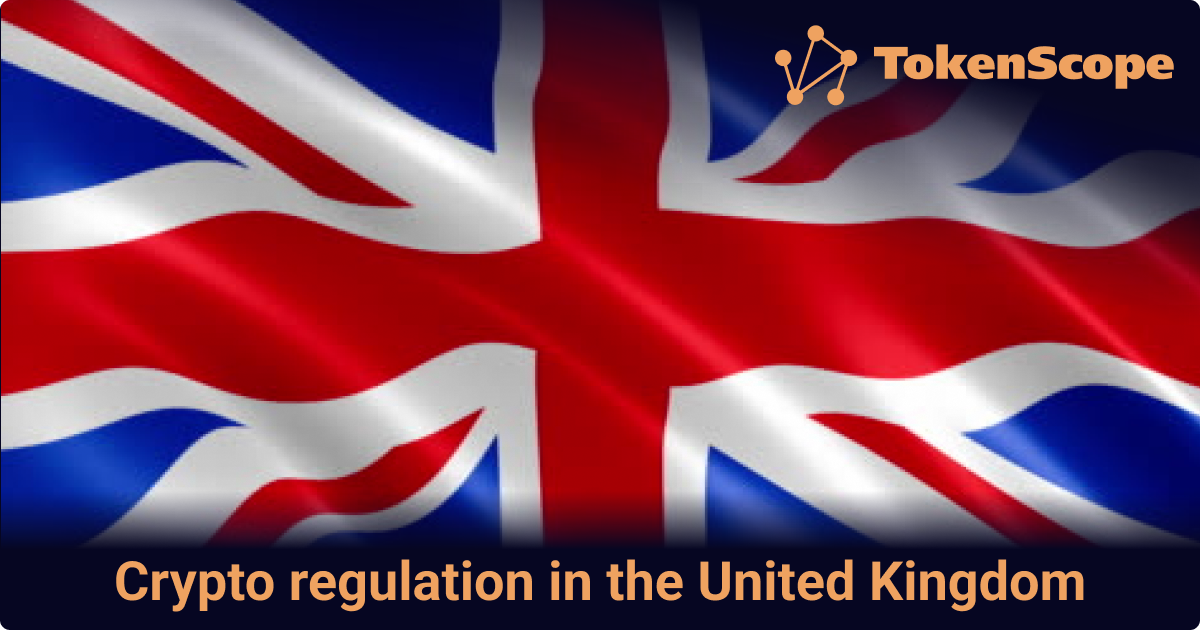Crypto regulation in the world: weekly digest #46

International scope
The International Organization of Securities Commissions (IOSCO) has released a consultation report proposing 18 policy recommendations for the regulation of crypto and digital asset markets. The recommendations are principles-based and outcomes-focused, aimed at activities performed by crypto-asset service providers (CASPs). The report covers a range of issues including market abuse, conflict of interest, and consumer protection. The recommendations are designed to contribute to a larger effort by international bodies to supervise what regulators see as an unstable financial market.
The proposed recommendations are structured to offer guidance to regulators worldwide on handling the crypto and digital asset markets. The report is open for public feedback until early Q4 this year, after which IOSCO plans to finalize the recommendations.
IOSCO applies its principles to the regulation of securities markets globally, and the recommendations are intended to provide guidance to regulators worldwide. The proposed recommendations have been broadly welcomed by industry stakeholders, although there is some uncertainty about how the rules will look in effect. There will always be a tension in the crypto market between the nature of crypto – a decentralized technology, sitting above the traditional jurisdictional borders, taking risks, pushing technological boundaries – and a desire from governments to implement regulations to protect consumers.
IOSCO urges global harmonization of crypto oversight to ensure greater regulatory and oversight consistency within the crypto and digital assets markets. The recommendations are expected to contribute to the development of a more stable and transparent crypto market.
Japan
Japan's Cabinet has decided to enforce stricter anti-money laundering (AML) measures starting from June 1, to trace cryptocurrency asset transactions and align its legal framework with global standards. This decision follows the Financial Action Task Force's (FATF) assessment that Japan's AML steps were insufficient.
A key feature of the new framework is the enforcement of the so-called Travel rule. This rule requires financial institutions processing a crypto asset transfer to pass on customer information to the next institution, including the names and addresses of the sender and recipient. Japan has already been working on implementing the FATF's Crypto Travel Rule since April 2022. The country's virtual asset service providers (VASPs) have been getting into compliance ahead of schedule, demonstrating Japan's commitment to AML and counter-terrorism financing (CTF) efforts in the region.
The new AML measures will also focus on monitoring the activity of major cryptocurrencies like Bitcoin and Ether, as well as stablecoins and cryptocurrencies pegged to a currency like the U.S. dollar or a commodity. Oversight organizations have been strengthening their monitoring of crypto assets that can be used to launder money, an activity in which money obtained from illegal activities is made to look legitimate by processing it through legal transactions.
We already wrote that Japan has been one of the earliest adopters of blockchain technology and cryptocurrencies, legalizing them as property. The country has a well-contoured crypto assets regulatory framework in place, aimed at providing clarity and curbing money laundering.
South Africa
South Africa's Financial Sector Conduct Authority (FSCA) has announced that all cryptocurrency companies operating in the country will need to apply for a license between June 1 and November 20, 2023, in order to operate legally. The new licensing regime is being set up to protect consumers and is welcomed by South African crypto companies. However, smaller companies worry that the fine waiting for those that fail to register in time may sink them or drive away firms that want to enter the market after the deadline has passed. The deadline for applying for a license is November 20, 2023 and failure to register in time may result in a fine of $510 000.
The FSCA proposed that crypto should be treated like financial products in November 2020, and on October 19, 2022, the FSCA published the final declaration on the licensing. The declaration does not mean that crypto assets are legal tender, but the new licensing regime is expected to provide a safer environment for crypto investors in South Africa and allow crypto firms to operate with clear rules.
According to the FSCA crypto assets are considered as financial products, and firms offering crypto-related services must apply for a license. Therefore, any crypto-related services, including trading, exchanges, and wallet providers, require a license to operate legally in South Africa.
News from other countries:
- In Colombia legislators discuss bill proposal to regulate cryptocurrency exchanges. The bill’s regulatory points include the requirement to obtain licene, conduct identity verification, separate customers’ funds from the company’s funds, and adhere to the principles of free competition and the free market.
- The Hong Kong SFC launched a consultation on the regulation of virtual asset trading platforms. Non-security tokens must have a 12-month track record of no negative behavior, stablecoins are presently not permitted to be acquired by retail investors and must wait for the new policy.
We continue to highlight the news of the world of crypto regulation worldwide. Please stay with us!




